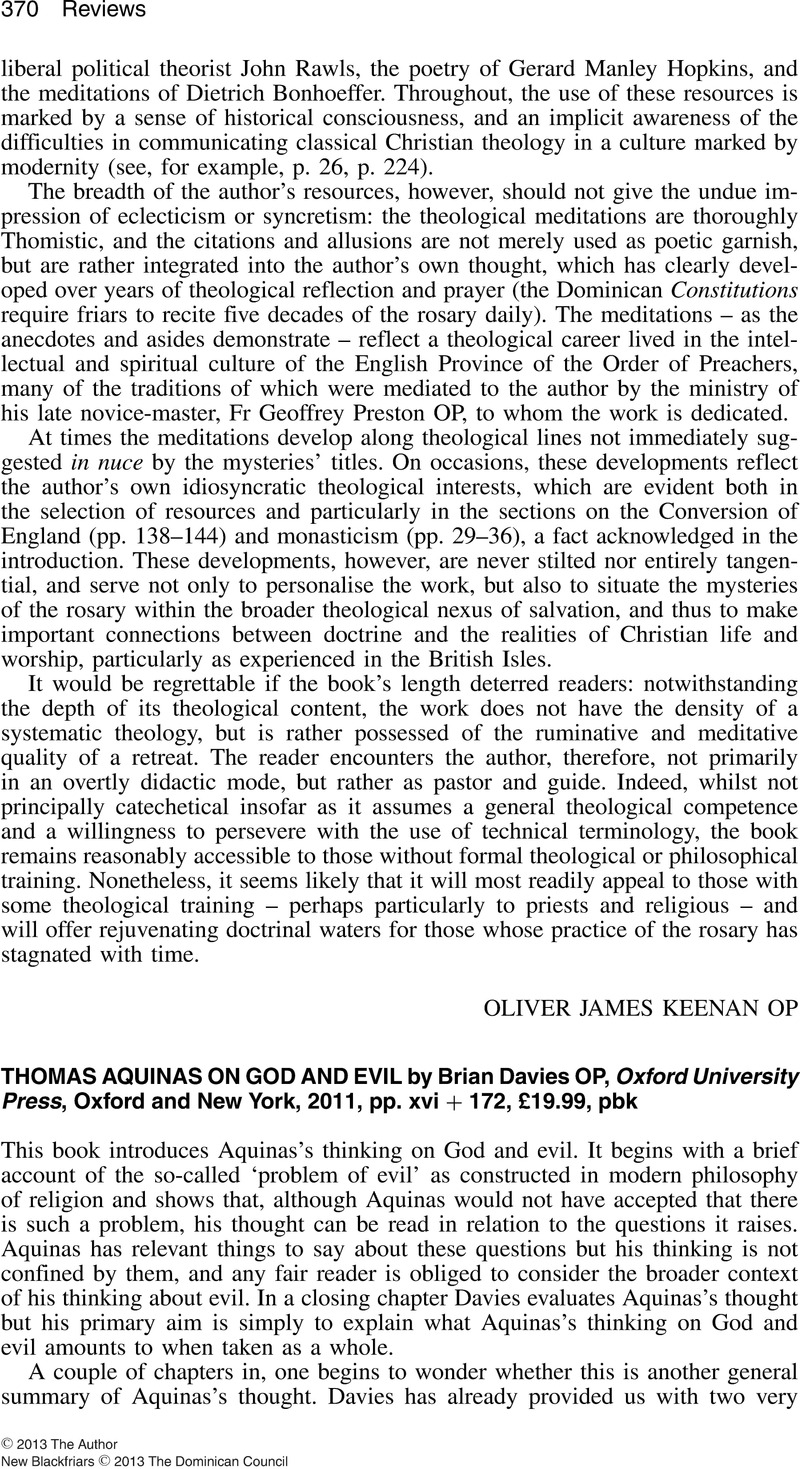No CrossRef data available.
Article contents
Thomas Aquinas on God and Evil by Brian Davies OP, Oxford University Press, Oxford and New York, 2011, pp. xvi + 172, £19.99, pbk
Review products
Thomas Aquinas on God and Evil by Brian Davies OP, Oxford University Press, Oxford and New York, 2011, pp. xvi + 172, £19.99, pbk
Published online by Cambridge University Press: 01 January 2024
Abstract
An abstract is not available for this content so a preview has been provided. Please use the Get access link above for information on how to access this content.

- Type
- Reviews
- Information
- Copyright
- Copyright © 2012 The Author. New Blackfriars © 2012 The Dominican Council


